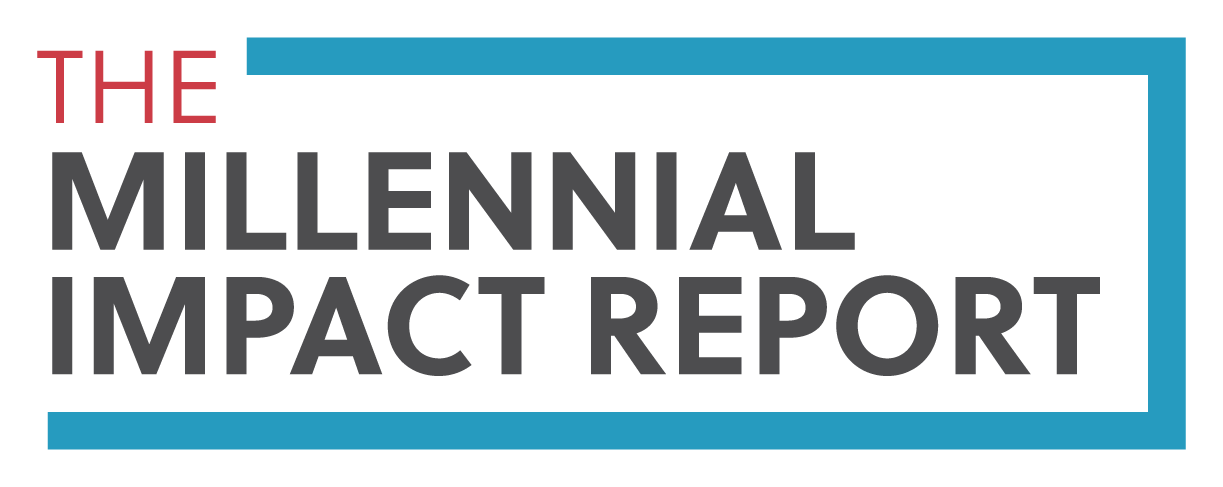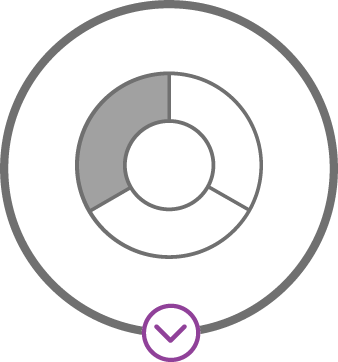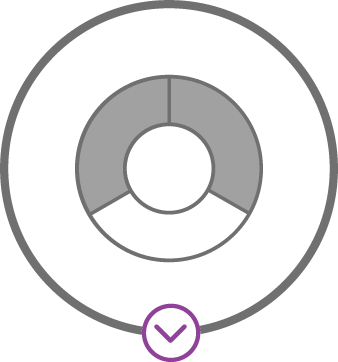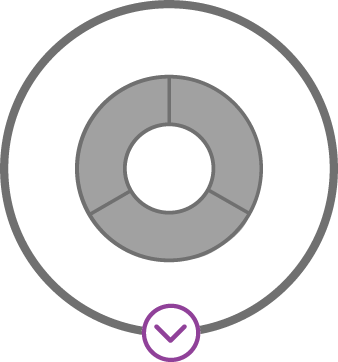Research is formalized curiosity. It is poking and prodding with a purpose.
- Zora Neale Hurston, author
Research is creating new knowledge.
- Neil Armstrong, astronaut
Achieve has been producing millennial research studies since 2009. We hold every team member to the highest standards of integrity, openness and objectivity in research practices, data management, authorships, client and sponsor relationships, and all other areas that involve or could reflect on the authenticity of our data or our reputation.
The Millennial generation’s sheer size demands researchers’ attention. Add its members’ propensity for cause work, and millennial involvement today could mean the success or failure of social movements into the near future.
2017 Reports
2017 Phase 1
Achieve’s research team has begun its investigation for the 2017 Millennial Impact Report and is publishing findings from Phase 1 here. Later phases will use these findings as the foundation for and the framework through which a deeper and more intensive examination of millennials’ activation with specific social issues will be investigated.
2017 Phase 2
Achieve’s research team has begun its investigation for the 2017 Millennial Impact Report and is publishing findings from Phase 2 here. Later phases will use these findings as the foundation for and the framework through which a deeper and more intensive examination of millennials’ activation with specific social issues will be investigated.
2017 Final Report
The U.S. presidential election and rising dissatisfaction with the country’s leadership since then inspired millennials to support causes that improve the lives of others. The 2017 Millennial Impact Report, Year in Review: An Invigorated Generation for Causes and Social Issues is the culmination of three phases of research into how millennials (born 1980-2000) have changed their attitudes and behaviors toward causes and social issues since Election Day 2016.
2016 Reports
2016 MIR Wave 1
The 2016 Millennial Impact Report investigates how millennials’ cause engagement behaviors may change during an election year, and how these changes may be influenced by important demographics such as gender, age, geographic location and race/ethnicity. The Wave 1 Trends Report details the overview and methodology of the 2016 study as well as trends from Wave 1 (March-May).
2016 MIR Wave 2
The 2016 Millennial Impact Report Wave 2 reveals new trends related to millennial engagement with causes during the 2016 presidential election cycle and investigates how organizations can motivate this generation to donate their time, money or skills to their causes during election years.
The second wave of data surveyed millennials from June through August 2016.
2016 MIR Wave 3
Wave 3 of the 2016 Millennial Impact Report examines millennials’ self-identified attitudes and voting intentions, especially during the last three months before Election Day, which may help researchers and reporters across the country explain why so many of us were caught off guard at the results of the nationwide vote.
2016 MIR Final Report
The final report of the 2016 Millennial Impact Project is the culmination of a year-long study investigating the connection between millennials’ cause engagement and their political ideologies. After analyzing each wave of data and its trends, the final report concludes that millennial preferences will require nonprofits and causes (as well as the companies that support them) to adjust how they inspire this generation to become advocates and donors.
2015 Reports
2015 MIR
Six-Month Update
Six-Month Update
The final update and summary of the 2015 Millennial Impact Report summarizes the project and looks at the differences in employee engagement between companies that offer giving and volunteering options.
2015 MIR
Three-Month Update
Three-Month Update
The 2015 Millennial Impact Report Three-Month Update expands on the research debuted in the 2015 report through a geographical and gender lens, as well as further validates past findings.
Millennial Impact
Top 100
Top 100
Top 100: The following 100 facts and quotes highlight the most useful findings from The Millennial Impact Project thus far. The findings below represent six years of millennial cause and workplace engagement research. Both companies and nonprofits can use these findings to better involve the next generation in your giving campaigns, volunteer projects, cause initiatives and corporate responsibility programs.
2015 Millennial
Impact Report
Impact Report
The 2015 Millennial Impact Report studies the relationships and experiences between Millennial employees and their managers. How do managers influence participation in company cause work? What else inspires participation?
2014 Reports
2014 MIR
Six-Month Update
Six-Month Update
This research update shares findings and analysis from the study’s final two components: Video-based focus testing of employees evaluating sample employer communications, websites and promotions and a nine-month panel of employees offering feedback on their employer’s cause work.
2014 Millennial
Impact Report
Impact Report
The 2014 Millennial Impact Report marked a new phase of the Millennial Impact research. This report focused primarily on Millennials’ preferences in the workplace – how they engage with their company and what they look for in corporate cause work.
2013 Reports
2013 Millennial
Impact Report
Impact Report
The 2013 Millennial Impact Report explored how millennials support causes. Specifically, this study dives deeper into understanding the influence of peer engagement, design and messaging, and how it all combines to encourage Millennials to act in the moment.
2012 Reports
2012 Millennial
Impact Report
Impact Report
The 2012 Millennial Impact Report studied Millennial engagement. Specifically, this study examined young professionals, how they are driven by movements and what inspires them to donate or volunteer. The 2012 report explored how Millennials connect with, get involved with and give to causes.
Other Reports
Retrospective:
Five Years of Trends
Five Years of Trends
From 2011 to 2016, the Millennial Impact Project has aimed to provide a comprehensive understanding of millennial interests, engagements and motivations as they relate to causes, whether it’s by giving, volunteering, social media sharing, activism, employment or voting in a national election. The qualitative and quantitative approaches to data collection applied reveal a socially-conscious generation that is passionate, well-informed and poised to engage when they care about an issue.
The project has heard from more than 75,000 millennials (born 1980 to 2000) to date, providing new insights into how the generation activates and engages with the causes they care about.
Millennial Impact
Four-Year Summary
Four-Year Summary
The Four-Year Summary, completed in 2014, takes a look back at previous Millennial research and analyzes the findings that have changed over time.
Millennial Impact
Benchmarks
Benchmarks
The Millennial Impact Benchmarks represents a path any organization can follow to direct its culture toward Millennial engagement. The system is based on three levels – Millennial Inviting, Millennial Immersion and Millennial Impact — with ways to help Millennials connect, involve and give at each level.







